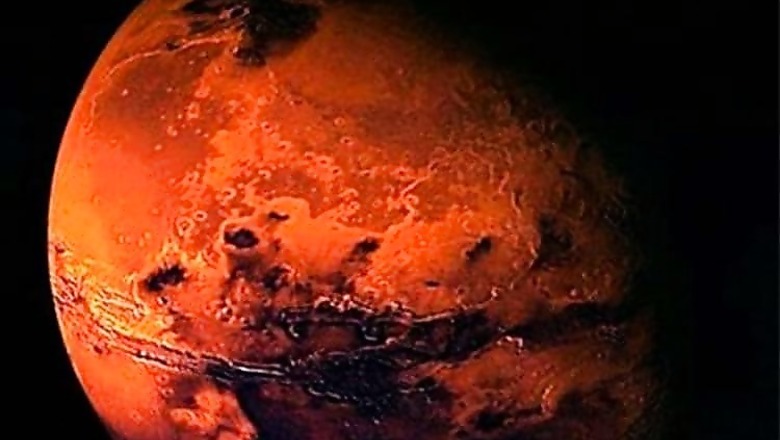
views
Paris: Europe and Russia are set to launch an unmanned spacecraft on Monday to smell Mars' atmosphere for gassy evidence that life once existed on the Red Planet, or may do so still.
ExoMars 2016, the first of a two-phase Mars exploration, will see an orbiter hoisted from Kazakhstan at 0931 GMT Monday on a Russian Proton rocket.
With its suite of high-tech instruments, the Trace Gas Orbiter or TGO, should arrive at the Red Planet on October 19 after a journey of 496 million kilometres (308 million miles). Its main mission to photograph the Red Planet and analyse its air, the TGO will also piggyback a Mars lander dubbed Schiaparelli.
"Rocket rollout -- our #ExoMars 2016 mission is at the launch pad!" the European Space Agency (ESA) tweeted Friday.
ExoMars is a two-step collaboration between ESA and Russia's Roscosmos space agency.
The second phase, a Mars rover due for launch in 2018, seems likely to be delayed over money worries. But the first phase is going ahead as planned, and with high expectations: "Determining whether Mars is 'alive' today", according to an ESA document.
A key goal is to analyse methane, a gas which on Earth is created in large part by living microbes, and traces of which were observed by previous Mars missions.
"TGO will be like a big nose in space," according to Jorge Vago, ExoMars project scientist. Methane, the ESA said, is normally destroyed by ultraviolet radiation within a few hundred years, which implied that in Mars' case "it must still be produced today." The question is: By what?
Methane can either be generated in a biological process, such as microbes decomposing organic matter, or geological ones involving chemical processes in hot liquid water under the surface.
TGO will analyse Mars' methane in more detail than any previous mission, said ESA, to try and determine its likely origin.
Another key element of the ExoMars 2016 mission is Schiaparelli, named after a 19th century Italian astronomer whose discovery of "canals" on Mars caused people to believe, for a while, that there was intelligent life on our neighbouring planet.

















Comments
0 comment